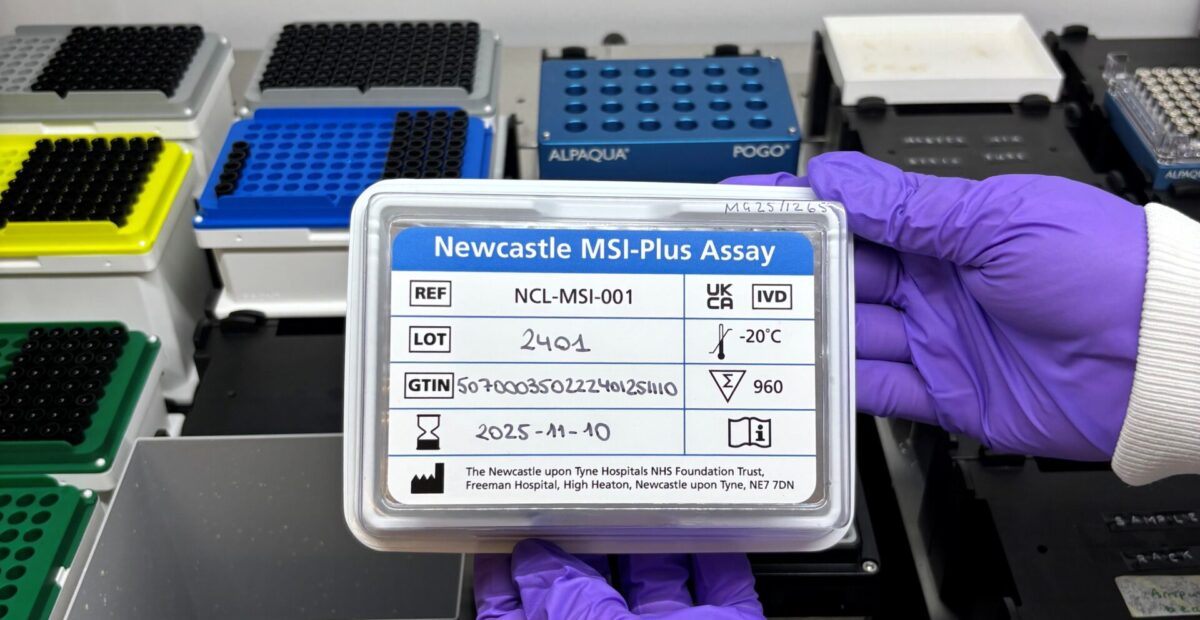The MSI-plus assay test for lynch syndrome detects a molecular footprint – a pattern of chemical changes – on DNA, which can indicate the presence of the condition.
It works using standard molecular technologies and techniques making it easy to embed within established laboratory workflows.
Screening for Lynch syndrome means that if a person tests positive, a DNA test can then be offered to their relatives to see who else has the condition, so that they can then be put on a regular programme of checks.
Designed by a team of scientists from Newcastle Hospitals and Newcastle University, led by Professor of clinical genetics, Sir John Burn, our test is currently used to screen patients with colorectal cancer in genomic labs in the north east and north Cumbria, Yorkshire and the Humber, and the south west.

to create the MSI-plus assay
Early research published in The Lancet has shown that the test is also effective in identifying urothelial cancers linked with Lynch syndrome. The team is working to develop this and the test is available for use in research in this area.
Registered as an in-vitro diagnostic medical device with the Medicines and Healthcare Products Regulatory Agency (MHRA), the assay is commercialised with a UKCA marker.
The assay has been validated and accredited within the Newcastle NHS genetics laboratory to UKAS ISO 15189 accreditation.
The MSI-plus assay has a pending patent application, with the following publication details: Patent Pending. Covered by U.S. Patent Publication No. US-2025-0305054-A1. For more information please visit Patent Public Search Basic | USPTO.
Make a purchase
